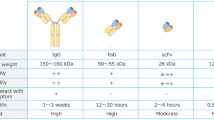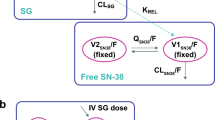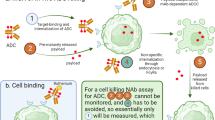Abstract
PEGylated biotherapeutics can elicit anti-PEG (polyethylene glycol) immune responses in patients treated with this category of drugs. While anti-PEG antibody assays for this class of biotherapeutics have become a common element of the clinical immunogenicity testing strategy, the overall antibody incidence induced by the nanoparticle (NP) delivery system (such as ACCURINS®) has not been fully studied to date. To support the immunogenicity assessment of one of Pfizer’s NP-based therapeutics, consisting of gedatolisib (GEDA) encapsulated in ACCURINS® (GEDA-NP), we developed an anti-GEDA-NP antibody (ADA) assay on the MSD platform for the detection of GEDA-NP induced ADA in human serum. The focus of our strategy was on developing a clinically relevant ADA assay and systematically addressing assay interference through rigorous assay optimization. Our efforts led to a fit-for-purpose assay for the detection of anti-GEDA-NP ADA in serum samples obtained from breast cancer patients. Results from method qualification indicated robust assay performance, as highlighted by inter and intra-assay precision within 25% CV for all controls, and reproducible response profiles across multiple runs during the assessment of assay cut points with breast cancer samples. The assay sensitivity was between 4.3 ng/mL and 123 ng/mL for surrogate positive controls of IgG and IgM isotypes, respectively. Additionally, assay interference from nonspecific matrix proteins and circulating drug was addressed, which ensured accurate assessment of ADA incidence that can be attributed to GEDA-NP.









Similar content being viewed by others
Abbreviations
- PLGA:
-
Poly(lactide-co-glycolide)
- PLA:
-
Poly(l-lactide)
- PEG:
-
Polyethylene glycol
- BGG:
-
Bovine gamma globulin
- MRD:
-
Minimal required dilutions
- ADA:
-
Anti-drug antibody
- GEDA-NP:
-
ACCURINS encapsulated with gedatolisib (GEDA), gedatolisib is a dual inhibitor of PI3K and mTOR activity. Gedatolisib has been evaluated for the treatment of ER+/Her2− breast cancer in clinical studies
- API:
-
Active pharmaceutical ingredient
- PI3K:
-
Phosphatidylinositol-3-kinase (PI3K)
- mTOR:
-
Mammalian target of rapamycin (mTOR)
References
Avgoustakis K. Pegylated poly(lactide) and poly(lactide-co-glycolide) nanoparticles: preparation, properties and possible applications in drug delivery. Curr Drug Deliv. 2004;1(4):321–33.
Ashton S, Song YH, Nolan J, Cadogan E, Murray J, Odedra R, et al. Aurora kinase inhibitor nanoparticles target tumors with favorable therapeutic index in vivo. Sci Transl Med. 2016;8(325):325ra17.
Autio KA, Dreicer R, Anderson J, Garcia JA, Alva A, Hart LL, et al. Safety and efficacy of BIND-014, a docetaxel nanoparticle targeting prostate-specific membrane antigen for patients with metastatic castration-resistant prostate cancer: a phase 2 clinical trial. JAMA Oncol. 2018;4(10):1344–51.
Hrkach J, Von Hoff D, Mukkaram Ali M, Andrianova E, Auer J, Campbell T, et al. Preclinical development and clinical translation of a PSMA-targeted docetaxel nanoparticle with a differentiated pharmacological profile. Sci Transl Med. 2012;4(128):128ra39.
Muhamad N, Plengsuriyakarn T, Na-Bangchang K. Application of active targeting nanoparticle delivery system for chemotherapeutic drugs and traditional/herbal medicines in cancer therapy: a systematic review. Int J Nanomedicine. 2018;13:3921–35.
Von Hoff DD, Mita MM, Ramanathan RK, Weiss GJ, Mita AC, LoRusso PM, et al. Phase I study of PSMA-targeted docetaxel-containing nanoparticle BIND-014 in patients with advanced solid tumors. Clin Cancer Res. 2016;22(13):3157–63.
Zamboni WC, Torchilin V, Patri AK, Hrkach J, Stern S, Lee R, et al. Best practices in cancer nanotechnology: perspective from NCI nanotechnology alliance. Clin Cancer Res. 2012;18(12):3229–41.
Cho K, Wang X, Nie S, Chen ZG, Shin DM. Therapeutic nanoparticles for drug delivery in cancer. Clin Cancer Res. 2008;14(5):1310–6.
Yang Q, Lai SK. Anti-PEG immunity: emergence, characteristics, and unaddressed questions. Wiley Interdiscip Rev Nanomed Nanobiotechnol. 2015;7(5):655–77.
Ishida T, Kiwada H. Accelerated blood clearance (ABC) phenomenon upon repeated injection of PEGylated liposomes. Int J Pharm. 2008;354(1–2):56–62.
Leach MW, Rottman JB, Hock MB, Finco D, Rojko JL, Beyer JC. Immunogenicity/hypersensitivity of biologics. Toxicol Pathol. 2014;42(1):293–300.
Barillet S, Fattal E, Mura S, Tsapis N, Pallardy M, Hillaireau H, et al. Immunotoxicity of poly (lactic-co-glycolic acid) nanoparticles: influence of surface properties on dendritic cell activation. Nanotoxicology. 2019;13(5):606–22.
Rauta PR, Nayak B. Parenteral immunization of PLA/PLGA nanoparticle encapsulating outer membrane protein (Omp) from Aeromonas hydrophila: evaluation of immunostimulatory action in Labeo rohita (rohu). Fish Shellfish Immunol. 2015;44(1):287–94.
Kavita U, Miller W, Ji QC, Pillutla RC. A fit-for-purpose method for the detection of human antibodies to surface-exposed components of BMS-986263, a lipid nanoparticle-based drug product containing a siRNA drug substance. AAPS J. 2019;21(5):92.
Gorovits B, Clements-Egan A, Birchler M, Liang M, Myler H, Peng K, et al. Pre-existing antibody: biotherapeutic modality-based review. AAPS J. 2016;18(2):311–20.
Xue L, Clements-Egan A, Amaravadi L, Birchler M, Gorovits B, Liang M, et al. Recommendations for the assessment and management of pre-existing drug-reactive antibodies during biotherapeutic development. AAPS J. 2017;19(6):1576–86.
Myler H, Hruska MW, Srinivasan S, Cooney E, Kong G, Dodge R, et al. Anti-PEG antibody bioanalysis: a clinical case study with PEG-IFN-lambda-1a and PEG-IFN-alpha2a in naive patients. Bioanalysis. 2015;7(9):1093–106.
Shankar G, Devanarayan V, Amaravadi L, Barrett YC, Bowsher R, Finco-Kent D, et al. Recommendations for the validation of immunoassays used for detection of host antibodies against biotechnology products. J Pharm Biomed Anal. 2008;48(5):1267–81.
Acknowledgments
We thank Pfizer colleagues supported this work: Dr. Ravi Visswanathan for GEDA-NP program support; Shuenn Shyong Liou and Brianna Donnelly who executed this work with Judith F. Smith together; Meghana Deshpande for clinical assay implement logistics, and Pfizer’s Critical Reagent Group for coordination of reagent productions. In addition, we also appreciate Dr. Steven Max for his critical guidance during the process of this manuscript and Dr. John Kamerud and Mr. Michael Luong for critical review. Lastly, we want to thank our CRO colleagues who performed feasibility study of this method.
Funding
This work was exclusively supported by Pfizer Inc.
Author information
Authors and Affiliations
Corresponding author
Ethics declarations
Conflict of Interest
This study was funded by Pfizer Inc. All the authors listed are employees of the Pfizer Inc. The publication of this work has been cleared by Pfizer’s Manuscript Review for Publications and the content of this manuscript has not been published elsewhere.
Additional information
Publisher’s Note
Springer Nature remains neutral with regard to jurisdictional claims in published maps and institutional affiliations.
Electronic Supplementary Material
ESM 1
(DOCX 14 kb)
Rights and permissions
About this article
Cite this article
Wang, Y., Smith, J.F., Araya, M.M. et al. Development of a Highly Specific Anti-drug Antibody Assay in Support of a Nanoparticle-based Therapeutic. AAPS J 22, 81 (2020). https://doi.org/10.1208/s12248-020-00462-z
Received:
Accepted:
Published:
DOI: https://doi.org/10.1208/s12248-020-00462-z




